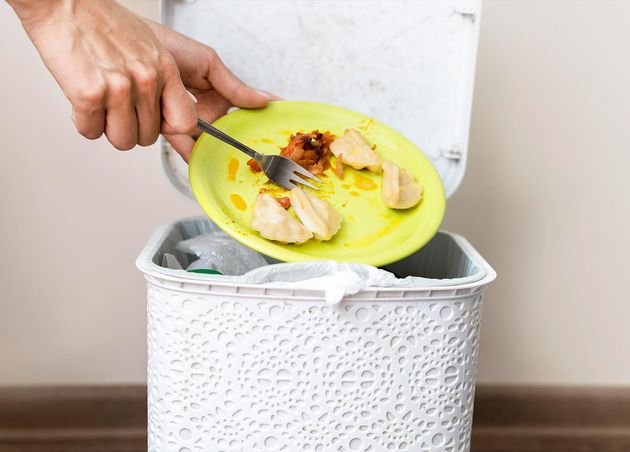Green Living for Better Health: Embracing an Eco-Sustainable Lifestyle
In a world grappling with resource depletion and climate change, more and more individuals seek to embrace eco-friendly living, recognizing the urgent need to impact our planet positively. The good news is that each of us holds the power to effect change, no matter how small our actions may seem.
Integrating eco-conscious behaviors into our daily lives is achievable and essential. Whether adopting a recycling mindset, harnessing green technologies to reduce fossil fuel consumption, or simply adjusting our thermostats for greater energy efficiency, there are myriad ways to make a difference.
In the following guide, we'll explore practical steps you can take to cultivate eco-friendly habits, shrink your carbon footprint, and embrace the use of energy-efficient products in your everyday routines. Join us on an insightful journey towards a sustainable future—one where every action, no matter how minor, contributes to the greater good of our planet.
🌏 Eco Fact!
77% of people desire knowledge about ways to lead their lives sustainably.
Effective Eco-Sustainable Lifestyle Choices for Better Health
#1 Educate Yourself and others
#2 Embrace Eco-Friendly Product Alternatives
Many conventional cleaning products harbor harmful chemicals detrimental to the environment and personal health. Take bleach, a common household cleaner notorious for its toxicity. Hazardous ingredients abound in everyday items, from air fresheners to oven cleansers and floor polish to aerosol sprays.
Instead, choose natural cleaning solutions like baking soda and white vinegar, which mitigate environmental impact and promote a healthier home. Support eco-conscious companies offering products crafted from recycled materials, steering clear of items sourced from endangered species or laden with pesticides and harmful chemicals. By making informed choices, you're not just cleaning your home but safeguarding the planet and your well-being.
#3 Utilize Eco-Conscious Cleaning Practices
Many conventional cleaning solutions harbor a cocktail of hazardous chemicals, ultimately finding their way into waterways, posing a threat to ecosystems and biodiversity. Transitioning to products crafted from non-synthetic ingredients and sustainably sourced materials reduces exposure to harmful substances, benefiting the environment and human health.
Furthermore, concocting your natural cleaning solutions using everyday ingredients like bicarbonate soda, vinegar, and lemon juice offers a cost-effective and environmentally friendly alternative.
#4 Promote Employee Use of Public Transportation
While driving may seem convenient, exploring alternative commute routes can yield greener results. Opting for buses or trains over personal vehicles significantly reduces pollution.
Consider pedal power, too—depending on your city's bike infrastructure, cycling to work can be a sustainable and invigorating choice. By embracing public transportation or cycling, you're not just easing traffic congestion but fostering a cleaner, healthier urban environment for all.
#5 Lessen the Time You Spend Driving
Most automobiles have been major contributors to greenhouse gas emissions and air pollution. Reducing your reliance on driving can shrink your carbon footprint and breathe cleaner air.
Explore alternative modes of transportation. This may include walking, biking, carpooling, or utilizing public transit. When driving, opt for environmentally friendly vehicles like electric or hybrid cars to mitigate environmental impact further. Practice mindful driving techniques to improve fuel economy and preserve the environment.
Additionally, consider retrofitting your vehicle to run on alternative fuels such as natural gas, electric, or hybrid systems for a greener ride. By taking these steps, you're not just cutting back on driving—you're driving positive change for our planet's future.
#6 Revamp Windows with Double or Triple Glazing
Upgrade your windows to double or triple-glazed options for enhanced insulation and numerous benefits.
Triple-glazed windows, featuring three glass sheets with two sealed gaps, offer superior thermal performance compared to double-glazed windows. These gaps are filled with insulating air or gas, typically argon, which minimizes heat transfer. Additionally, Low-E glass coatings on inner layers reflect heat into your home, reducing heat loss.
By investing in these advanced windows, you'll not only keep your property warmer but also enjoy reduced external noise levels and bolstered security. It's a win-win for comfort, sustainability, and peace of mind.
#7 Use Energy Sensibly
Electricity powers the essential functions of offices, but its usage requires careful consideration.
Achieving a greener workplace begins with businesses ensuring that all electric equipment is switched off when unused. Monitoring energy consumption and adjusting to avoid exceeding monthly thresholds is key to sustainability.
Moreover, many major IT companies lead by example, sourcing their electricity from renewable sources. By embracing sensible energy practices and renewable energy solutions, there's no doubt that most businesses can pave the way for a brighter, more sustainable future.
#8 Switch to Energy-Saving Appliances
In the United Kingdom, electrical waste amounts to a staggering 1.5 million tonnes annually. However, recent government regulations have paved the way for easier appliance repairs, with manufacturers now mandated to supply replacement components.
When the time comes to replace household appliances like ovens, dishwashers, refrigerators, freezers, or washing machines, rest assured that industry standards have been elevated to prioritize energy efficiency. These regulations allow energy-efficient appliances to be readily available across various price points.
Look for the energy efficiency label, graded from A to G, with A denoting the highest efficiency. Choosing appliances with higher energy efficiency ratings saves energy and money, reduces electrical waste, and safeguards the environment for future generations.
#9 Be a Thoughtful Shopper
Supporting businesses championing sustainability and eco-conscious practices is one of the most powerful ways to reduce your environmental footprint. When purchasing, seek out products crafted from recyclable materials and renewable resources.
Embrace items made from sustainable materials, and prioritize fair trade goods that uphold ethical production practices. By scrutinizing the origins and manufacturing processes of the products you buy, you're not just shopping—you're voting for a greener, more sustainable future with every purchase.
#10 Foster Eco-Conscious School Choices
Parents can make eco-friendly decisions for school transportation that benefit their children and the environment. Consider alternatives to driving, such as encouraging kids to take public transportation or walking to school.
Reducing car usage not only cuts down on pollution but also sets a positive example for sustainable living. Parents opt for cargo bikes in cities like Amsterdam and Copenhagen as a green alternative to driving, promoting active lifestyles and reducing carbon emissions. By making thoughtful choices about school transportation, we can cultivate a healthier and better planet for future generations.
#11 Upgrade to Smart Thermostats
Smart thermostats offer a practical and immediate solution for enhancing home efficiency. These innovative devices, accessible via any smart device, enable remote control of Wi-Fi-enabled features, seamlessly integrating with air conditioning units, boilers, and central heating systems.
Utilizing advanced technology, smart thermostats track heating patterns and adjust temperature settings based on external conditions. Equipped with presence-sensing technology, they automatically regulate heating when you're away and activate it upon your return.
By optimizing energy usage, smart thermostats reduce reliance on fossil fuel-powered plants, lowering utility expenses. Data from Google's Nest thermostat users revealed a significant 16.5% increase in energy savings for UK homes equipped with smart controls compared to those without. Upgrade to smart thermostats for smarter, greener home heating solutions.
#12 Minimize Food Waste
The abundance of food production leads to a distressing amount of food waste destined for landfills. Combat this issue by adopting mindful practices in the kitchen.
Plan meals thoughtfully, utilizing ingredients before expiration and serving appropriate portions to minimize leftovers. Consider composting food scraps to enrich soil and divert waste from landfills. Additionally, donating surplus food to local food banks offers a meaningful solution to reduce food waste while helping those in need.
Taking proactive steps to lessen food waste can significantly impact environmental sustainability and community well-being.
#13 Pay Attention to Printing Paper
Paper consumption is often significant in office environments, but printing isn't always essential.
Before hitting print, pause and consider whether a hard copy is necessary. Many documents can be efficiently circulated electronically, saving both paper and resources. Contracts, for example, can be sent and signed electronically, drastically reducing their carbon footprint.
By embracing digital alternatives and minimizing unnecessary printing, we can decrease paper consumption and contribute to a much greener, more sustainable workplace.
#14 Insulate Your Cavity Walls
Insulation is a wise investment when considering home improvements like installing a heat pump or residing in an older home with cavity walls.
Cavity walls, composed of inner and outer walls with an air gap between them, are ideal for insulation. Various materials, including polystyrene and wood fiber, can be used for insulation.
Insulation boards are particularly suitable for large spaces and cavity walls, offering a straightforward installation process even for enthusiastic DIYers. Insulating your cavity walls enhances energy efficiency and comfort in your home while reducing heat loss and environmental impact.
#15 Enhance Radiator Efficiency with Foil
Radiator foil, a thin reflective sheet, acts as a barrier, bouncing heat back into the room and minimizing heat loss through external walls.
This simple, cost-effective solution offers a quick and easy alternative to traditional wall insulation. Maximizing radiator efficiency with foil can improve warmth retention in your home while reducing energy consumption and environmental impact.
#16 Reduce Your Meat Consumption
Agriculture's greenhouse gas emissions predominantly stem from meat and dairy production. Emissions abound throughout the manufacturing, processing, packaging, and delivery stages. Methane from animal digestion and nitrous oxide, a byproduct of nitrogen fertilizers, contribute significantly to greenhouse gas emissions.
Reducing meat consumption is a powerful strategy to mitigate emissions, as meat and dairy production are major contributors to greenhouse gas emissions. While transitioning to a vegan diet is one option, simply cutting back on meat consumption can already have a substantial impact. By embracing meat reduction, you're making a positive environmental difference and promoting healthier and more sustainable eating habits.
#17 Renew Your Window Seals
Over time, window seals deteriorate, expanding and contracting with temperature fluctuations, compromising their ability to maintain an airtight seal. Replacing window seals every five to ten years is recommended to uphold optimal efficiency.
By refreshing your window seals, you prevent drafts from siphoning heat and thwart moisture buildup. Left unchecked, moisture accumulation can foster mold growth and cause structural damage to the surrounding area.
Prioritizing regular maintenance of window seals ensures a snug fit, maximizing energy efficiency and safeguarding your home against potential damage.
#18 Use Biodegradable Home Essentials
While the fate of discarded items is often beyond our control, we can mitigate the impact of waste by opting for biodegradable products crafted from natural ingredients.
Biodegradable materials break down when exposed to bacteria and fungi, seamlessly reintegrating into the environment without leaving harmful residues. From recycled toilet paper to shampoo and deodorant formulated with natural ingredients, embracing biodegradable options minimizes environmental impact.
Consider eco-friendly alternatives like bamboo toothbrushes and washcloths crafted from agave or hemp fibers. By incorporating biodegradable domestic items into your daily routine, you're taking proactive steps to reduce waste and preserve our planet's delicate ecosystem.
🌏 Eco Trivia!
Living sustainably helps both the environment and you. You become a happier person as well!
In conclusion, embracing an eco-sustainable lifestyle is not just a personal choice; it's a collective responsibility to safeguard our planet for future generations. By adopting the outlined practices in this guide, individuals can make meaningful strides toward reducing their environmental footprint and promoting sustainability in their daily lives. From conscientious shopping habits to energy-efficient home upgrades and mindful transportation choices, every action, no matter how small, contributes to the greater goal of preserving our planet's resources and biodiversity.
Furthermore, cultivating an eco-conscious mindset extends beyond individual actions to foster systemic change. By advocating for sustainable practices in our communities and supporting businesses that prioritize environmental stewardship, there's no doubt that we can amplify our own impact and inspire everyone to join the movement towards green living. Together, let us embark on this journey towards a more sustainable future, where our collective efforts pave the way for a much healthier planet and a brighter tomorrow for us all.
Eco Bear


































